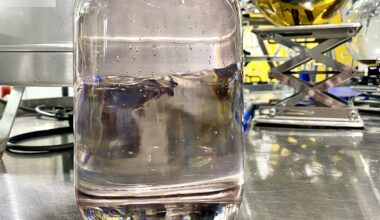[ad_1]
(A version of this story originally appeared at Marijuana Business Daily and will be updated.)
An Irish pharmaceutical firm, Jazz Pharmaceuticals, has agreed to purchase United Kingdom-based GW Pharmaceuticals, one of the largest medical cannabinoid companies in the world, for $7.2 billion, the drug companies said Wednesday.
The proposed cash-and-stock deal would be the largest acquisition in the cannabis industry to date and a key move by a pharmaceutical company into cannabis. GW created the only plant-derived cannabis medicine approved by the U.S. Food and Drug Administration, Epidiolex.
It could also could spur increased research and development into the burgeoning field.
Under the terms of the transaction, each GW shareholder would receive $200 in cash and $20 in Jazz ordinary shares for each GW American Depositary Share, resulting in an aggregate consideration of $7.2 billion.
“What we’ve been able to demonstrate at GW over the last 20 years is that the cannabinoid platform is a real and compelling science,” Justin Gover, CEO of GW Pharmaceuticals, told analysts during a conference call.
“There is very significant growth potential within the approved indications.”
GW’s main product is Epidiolex, which the company said achieved approximately $510 million in annual sales within two years of its launch.
Epidiolex has been approved in certain countries for the treatment of certain seizure disorders.
Jazz Pharmaceuticals CEO Bruce Cozadd sees opportunity to expand sales in Europe.
“This product is not that far into its launch. The GW team has done an excellent job, but there is lots of room to grow in the existing indications, including THC, which was fairly recent,” Cozadd told analysts.
“Similarly, there is lots of room in Europe. If you look at other product launches in this space, that’s what we’ve seen over time, as physicians get more and more comfortable with the use of these agents in these patients that really need a different therapy to get additional benefit.”
Gover said there is unlocked opportunity beyond Epidiolex.
“It’s not just Epidiolex. For each one of the pipeline assets, we’ve been very thoughtful about the exclusivity approach,” he said. “We understand and appreciate good medicine needs to primarily be transformative for patients, but it also needs to … return value to investors.
“There is still more to come, even with Epidiolex itself. This is an IP estate that is going to continue to build.”
The proposed deal has already been approved by the respective companies’ boards and is expected to close in the second quarter of this year.
Before the GW deal, Jazz Pharmaceuticals had said it expected to report revenue between $2.32 billion to $2.38 billion in 2020.
Diverging strategies
The Jazz-GW transaction highlights diverging strategies by some large companies when it comes to deploying capital in medical cannabinoids.
GW differentiated itself in the field of medical cannabis by developing a suite of products via traditional regulatory-approval pathways, including through expensive clinical trials. GW became the largest medical cannabinoid company in the world in the process.
The UK company’s R&D spending amounted to $290.5 million in 2019 and the first three quarters of fiscal 2020.
GW employs 278 people in research and development, more than the 192 people involved in manufacturing and operations.
The company has exported its products to more than 30 countries, according to financial disclosures, for either commercial or research purposes.
GW’s intellectual-property portfolio includes 767 issued patents outside the United States and 57 issued patents in the U.S., according to the company’s annual disclosure.
Additionally, the company said it has 259 pending patent applications worldwide.
Issued or pending claims cover:
- Plants.
- Plant extracts.
- Extraction technology.
- Pharmaceutical formulations.
- Drug delivery.
- The therapeutic uses of cannabinoids.
- Plant-variety rights.
GW leases three growing facilities in the United Kingdom, measuring a combined 2.1 million square feet in size.
In December, Canopy initiated a lawsuit against GW in U.S. federal court, alleging that the U.K. company knowingly infringed upon Canopy’s intellectual property.
According to a complaint, GW uses a Canopy-patented method to extract the CBD that’s the active ingredient in its Epidiolex medication.
In a statement emailed to Marijuana Business Daily that month, GW said that, “based on our preliminary review of the complaint, we are confident in our position and will vigorously defend against this lawsuit.”
GW trades on the Nasdaq as GWPH. Jazz trades on the Nasdaq as JAZZ.
Matt Lamers is Marijuana Business Daily’s international editor, based near Toronto. He can be reached at [email protected].
[ad_2]
Source link
Medical Disclaimer:
The information provided in these blog posts is intended for general informational and educational purposes only. It is not a substitute for professional medical advice, diagnosis, or treatment. Always seek the advice of your physician or other qualified healthcare provider with any questions you may have regarding a medical condition. The use of any information provided in these blog posts is solely at your own risk. The authors and the website do not recommend or endorse any specific products, treatments, or procedures mentioned. Reliance on any information in these blog posts is solely at your own discretion.







